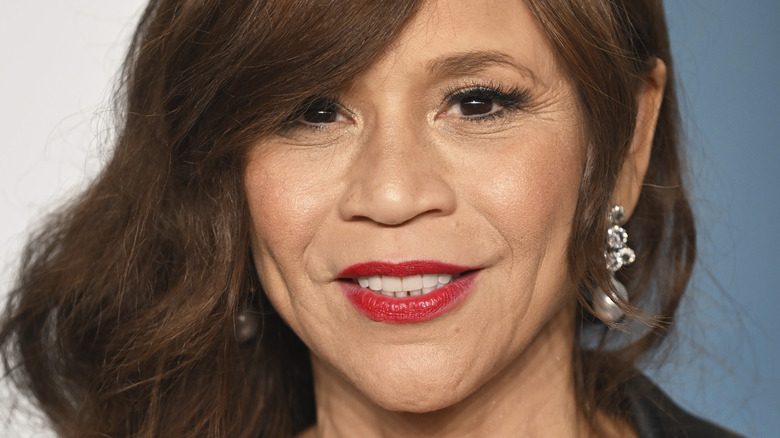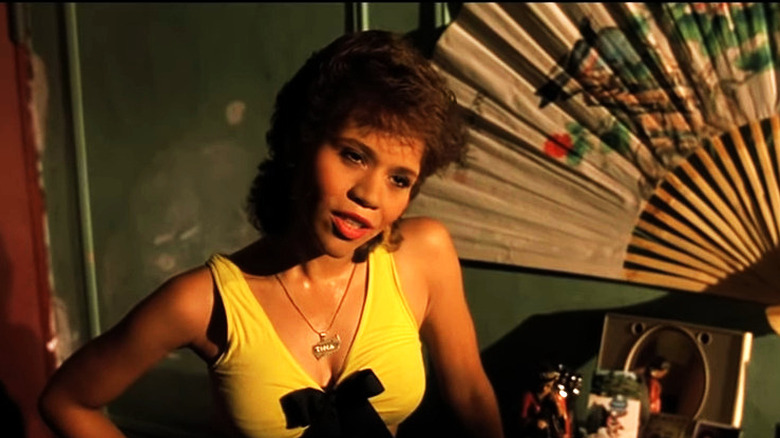Do The Right Thing's Rosie Perez Didn't Back Down When Faced With Backlash For Her Portrayal Of Tina
Released in the summer of 1989, writer-director Spike Lee's "Do the Right Thing" follows pizza delivery guy Mookie (Lee), who traverses the streets of his Brooklyn neighborhood on a sweltering summer day while racial tensions build between the neighborhood's black residents and the Italian-American owners of a local pizzeria. With its unapologetic look at racial relations within American society that audiences were not used to seeing on such a scale, the film received positive reviews from critics such as Roger Ebert, who said that the drama "comes closer to reflecting the current state of race relations in America than any other movie of our time." The film would also receive two Academy Award nominations, one for best original screenplay and the other for best supporting actor for Danny Aiello's portrayal of pizzeria owner Sal (via IMDb).
With the 1980s being a time when race issues were rarely a topic of deep examination on-screen, "Do the Right Thing" was seen as controversial by many people. Several critics at the time, confused by the film's fiery finale that sees the neighborhood's Black residents start a riot following the murder of Radio Raheem (Bill Nunn) at the hand of the police force, expressed concern that the film would even incite real-life riots throughout the country (via Vulture). Similarly, intense comments would come from people of color as well, including some against one of the film's primary actresses, Rosie Perez, who has never felt she fit in in Hollywood. However, Perez, realizing the meaning the film holds, was ready to defend what would come at her.
Perez recognizes the satirical edge present in Do the Right Thing
Even before "Do the Right Thing" shocked audiences in the United States, actress Rosie Perez knew the film would leave an impact. Perez portrays Tina, Mookie's Puerto Rican girlfriend and the mother of his child. During the film's iconic opening credits sequence, she performs a rigorous dance to Public Enemy's "Fight the Power," setting the mood for the hard-hitting, uncompromising experience to come.
In a 2010 interview with Bet, Perez talked about the heat she received for her performance from within the Latin community. "They were offended," she said. "'This is not a positive representation of who we are!' Back then, they didn't call themselves Latin. They called themselves Hispanic, which I thought was hilarious. I don't call myself Latin. I call myself Puerto Rican. Having to have a discussion with so-called intellectuals, Latino intellectuals — it's satire. Like it or not, there are characters like this that do exist ... If we can't look at the good, bad, and ugly of who we are, we are never going to progress as people — ever."
Despite the pride Perez has in the iconic final product, she would express her immense discomfort when performing a nude sequence in the film. As she told The New York Times, "And when Spike Lee puts ice cubes on my nipples, the reason you don't see my head is that I'm crying. I was like, 'I don't want to do this.'"

